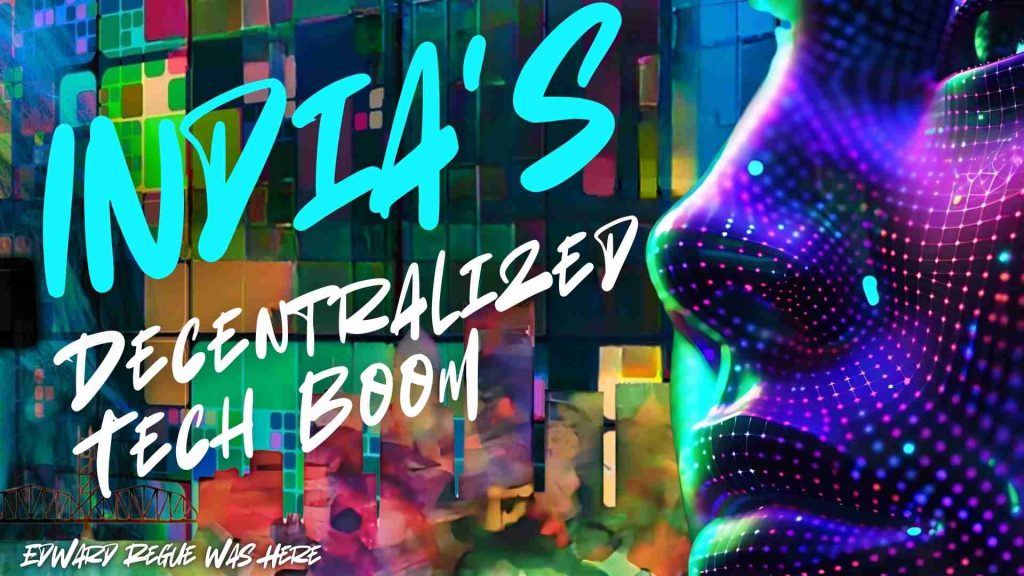India is making waves in the world of decentralized technology, riding a powerful surge of innovation in Web3, blockchain, and other decentralized tech, India is driving a powerful surge in decentralized technology, with rapid innovation in Web3, blockchain, and other emerging technologies. Thanks to a young, digitally savvy population and strong tech infrastructure, India isn’t just catching up to global trends. It’s positioning itself as a leader. Let’s explore the factors behind this decentralized tech boom and why India is on track to dominate the Web3 world.
The Young Generation Fueling Digital Change
India’s biggest strength in this tech revolution is its youth. Over half the population is under 25. This age group has grown up using smartphones and the internet, giving them a natural advantage in navigating digital systems. Currently, India has 800 million internet users, with 600 million accessing it through smartphones. This widespread digital engagement makes India fertile ground for Web3 adoption.
Moreover, young Indians aren’t just passive consumers. They are building, creating, and actively shaping the tech landscape. By 2026, blockchain adoption in India could reach 46%, driven by this generation’s enthusiasm. In short, India’s young population isn’t just embracing decentralization—they’re accelerating it.
A Strong Digital Foundation for Growth
India’s existing digital infrastructure supports its decentralized tech growth. One standout example is the Unified Payments Interface (UPI), which processes over 4.5 billion transactions monthly. UPI has made digital transactions easier, faster, and more secure.
India Stack, which includes Aadhaar (the digital ID system), adds another layer of digital support. These tools are creating a framework for secure, scalable Web3 applications. Thanks to this infrastructure, India can transition smoothly into the world of decentralization.
Startups Leading the Way in Web3
India’s startup ecosystem is thriving, especially in the Web3 space. The country now hosts more than 900 Web3 startups. Companies like Polygon and CoinDCX, already unicorns, are leading this revolution. These startups aren’t just experimenting with blockchain. They’re applying it to real-world challenges in industries like finance and logistics.
In 2021, India created more unicorns than China, showing its dominance in tech innovation. As startups continue to grow, they’re turning India into a major player in the global decentralized landscape.
Active Government Support and Clear Regulations
The Indian government plays a key role in supporting decentralized technologies. Through the Financial Technology and Blockchain (FIT21) Act, the government is creating a favorable environment for fintech and blockchain businesses. Additionally, India has explored blockchain for land management and promotes its use across various sectors.
The government’s backing gives confidence to investors and innovators, making it easier for decentralized systems to flourish. This regulatory clarity also allows startups to operate without the fear of legal gray areas, boosting growth.
Building Talent for the Decentralized Future
India’s top educational institutions, including the Indian Institutes of Technology (IITs) and National Institutes of Technology (NITs), have been offering blockchain courses since 2018. These programs equip students with the skills needed for Web3 development.
This focus on education ensures that India will continue to produce talent that’s well-versed in decentralized technologies. With a strong pipeline of skilled professionals, the country can sustain its rapid growth in the Web3 space.
Market Potential and Global Leadership
India’s decentralized tech sector is poised to significantly impact the economy. Experts predict that Web3 could contribute $1 trillion to India’s GDP by 2032. This isn’t just about local innovation. India’s large English-speaking population and skilled workforce give it a competitive edge in the global Web3 market.
Indian Web3 founders, many of whom have global reach, are helping to position the country as a global leader. As India continues to make strides in blockchain, its influence will only grow on the international stage.
Blockchain as the Backbone of India’s Growth
Blockchain is already driving innovation across multiple sectors in India. It’s improving transparency in finance, healthcare, and logistics. The adoption of decentralized systems across these industries shows that blockchain is becoming integral to India’s future.
Conclusion: India’s Decentralized Future is Bright
India’s decentralized tech boom is no accident. It’s driven by a young, tech-savvy population, world-class digital infrastructure, a dynamic startup ecosystem, and strong government support. These factors make India a global leader in decentralized technology.
As India continues this journey, it’s not just following global trends—it’s setting them. In the words of Mahatma Gandhi, “The future depends on what we do in the present.” India’s present actions in the Web3 space are building a future where it will lead the decentralized revolution.
Stay tuned for more.
Edward Regue | Philosopher of Web3 | Immersive Spaces










